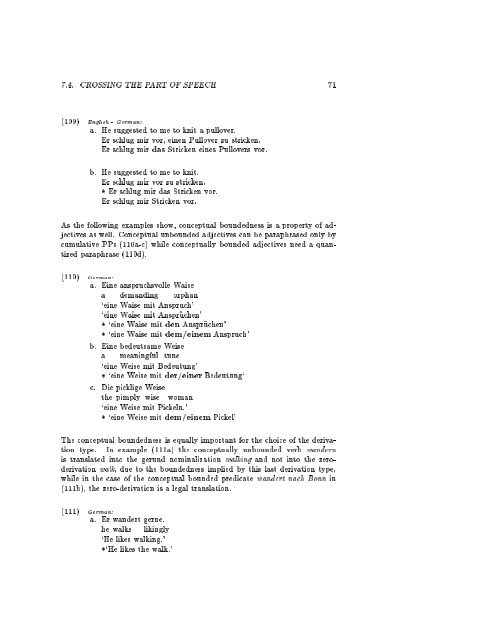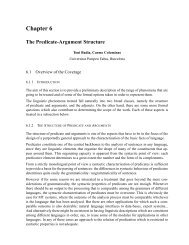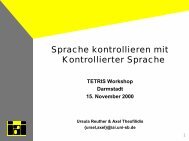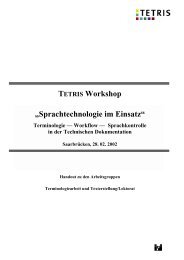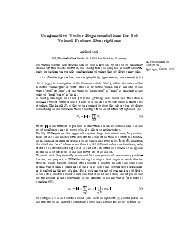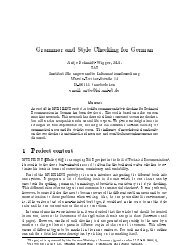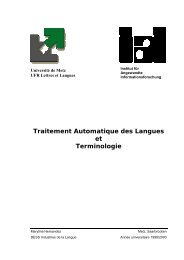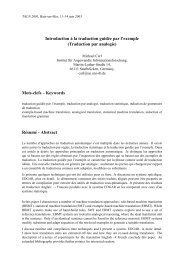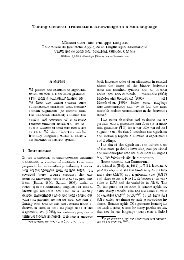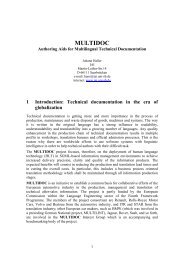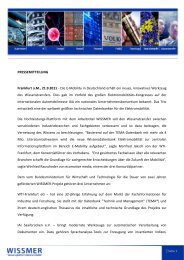Linguistic Modeling for Multilingual Machine Translation
Linguistic Modeling for Multilingual Machine Translation
Linguistic Modeling for Multilingual Machine Translation
You also want an ePaper? Increase the reach of your titles
YUMPU automatically turns print PDFs into web optimized ePapers that Google loves.
7.4. CROSSING THE PART OF SPEECH 71<br />
(109) English - German:<br />
a. He suggested to me to knit a pullover.<br />
Er schlug mir vor, einen Pullover zu stricken.<br />
Er schlug mir das Stricken eines Pullovers vor.<br />
b. He suggested to me to knit.<br />
Er schlug mir vor zu stricken.<br />
* Er schlug mir das Stricken vor.<br />
Er schlug mir Stricken vor.<br />
As the following examples show, conceptual boundedness is a property ofadjectives<br />
as well. Conceptual unbounded adjectives can be paraphrased only by<br />
cumulative PPs (110a-c) while conceptually bounded adjectives need a quantized<br />
paraphrase (110d).<br />
(110) German:<br />
a. Eine anspruchsvolle Waise<br />
a demanding orphan<br />
`eine Waise mit Anspruch'<br />
`eine Waise mit Anspruchen'<br />
* `eine Waise mit den Anspruchen'<br />
* `eine Waise mit dem/einem Anspruch'<br />
b. Eine bedeutsame Weise<br />
a meaningful tune<br />
`eine Weise mit Bedeutung'<br />
* `eine Weise mit der/einer Bedeutung`<br />
c. Die picklige Weise<br />
the pimply wise woman<br />
`eine Weise mit Pickeln.'<br />
* `eine Weise mit dem/einem Pickel'<br />
The conceptual boundedness is equally important <strong>for</strong> the choice of the derivation<br />
type. In example (111a) the conceptually unbounded verb wandern<br />
is translated into the gerund nominalization walking and not into the zeroderivation<br />
walk, due to the boundedness implied by this last derivation type,<br />
while in the case of the conceptual bounded predicate wandert nach Bonn in<br />
(111b), the zero-derivation is a legal translation.<br />
(111) German:<br />
a. Er wandert gerne.<br />
he walks likingly<br />
`He likes walking.'<br />
*`He likes the walk.'


